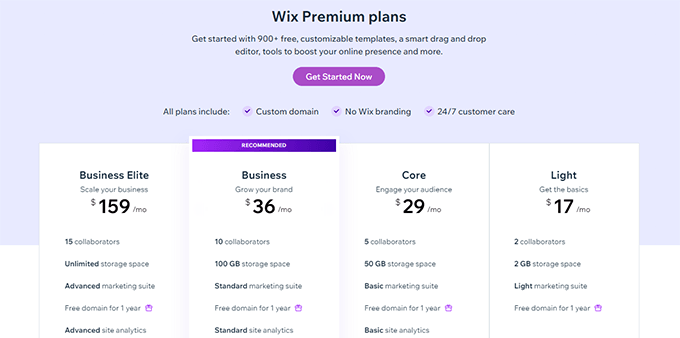While both platforms have their strengths and cater to different user needs, the choice between Wix and WordPress ultimately depends on your website goals and technical expertise. Wix Vs. WordPress (2024 Comparison)
Consider your specific needs when choosing between Wix and WordPress. If you prioritize ease of use and want a quick solution for a visually appealing website, Wix might be the better option. On the other hand, if you require more customization options, have coding knowledge,
and want to scale your website extensively, WordPress could be the more suitable choice. Assess your budget, design requirements, and long-term goals to make an informed decision that aligns with your website objectives.
Which Is Easier To Use?
In terms of ease of use, Wix is generally considered to be more user-friendly than WordPress. Wix is a website builder platform that uses drag-and-drop tools and pre-designed templates, making it easy for anyone to create a professional-looking website without any coding knowledge.
WordPress, on the other hand, is a content management system that requires a certain level of technical knowledge to use effectively. While it is possible to use WordPress without knowing how to code, you may find it more challenging to customize your website beyond the options provided by themes and plug-ins.
In short, the ease of use will depend on your specific needs and skills. If you want a simple platform that allows you to create a website quickly and easily, without any coding knowledge, Wix may be the better choice. However, if you are willing to invest the time and effort to learn how to use WordPress, or if you have specific needs that require more advanced customization options, it can be a powerful and flexible platform.
Which Is Better for SEO and Marketing?
In addition to optimizing search engine rankings through blogging and expanding reach through social media, businesses can also utilize email marketing to nurture leads and maintain customer relationships. By sending targeted and personalized emails to subscribers, companies can provide valuable information, promotions, and updates,
ultimately driving conversions and fostering brand loyalty. Email marketing tools allow for segmentation, automation, and performance tracking to ensure that campaigns are effective and drive results.
Furthermore, integrating email marketing with CRM strategies can provide businesses with a more holistic approach to customer relationship management. By syncing customer data and interactions from email campaigns with CRM systems,
companies can gain a deeper understanding of their audience and tailor marketing efforts accordingly. This alignment can lead to more personalized and effective communication, ultimately improving customer engagement and loyalty.


